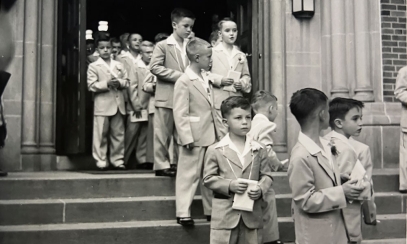
How do you want to be remembered
Interviews with famous people often involve this canned question: “How do you want to be remembered?”
Interviews with famous people often involve this canned question: “How do you want to be remembered?”
I long for the day when one of these celebrities says, “I don’t want to be remembered. The more I am remembered, the further I will be from God. I hope nothing is remembered of me, that I go into God emptied of all things of this world.”
Wouldn’t that be an interview to behold: a famous person who doesn’t want a legacy, who realizes that God exists where there are no things, in the nothingness! Even our self is a thing that we have to discard before we are worthy of divine life in God.
Captain Stormfield’s Visit to Heaven, a Mark Twain short story, exemplifies the importance of earthly nothingness in a humorously insightful way.
Captain Stormfield dies and is immediately whisked off to heaven. However, he lands in the wrong section. You see, heaven is big, with residents from all over the cosmos. And to the captain’s surprise, most residents weren’t white, since the cosmos was filled with people of many colors.
Once he makes it to his section, another surprise: few residents have wings. The angel assigned to him said they are just too heavy and cumbersome, so most folks hang them up after a short time.
Captain Stormfield asks about meeting Abraham and is gently told how logistically impossible it would be for Abraham to accommodate all the residents who want to rest their collective heads on his bosom.
The captain learned two things. First, the least among us on earth were the most admired and celebrated in heaven. Second, recognition on earth did not necessarily translate into recognition in heaven. Twain’s descriptions throughout of people who were nothing on earth but now known in heaven for what they would have been circles back to my point. God and holiness are to be found in the nothingness. It is not that nothingness makes us holy. Rather, in our nothingness, God has ample room to move, inhabit our being and make us holy.
Edward Farrell, in his book Free to be Nothing, highlighted that one of Mother St. Teresa’s sisters once said that the saint’s “secret gift is that she is free to be nothing; and, therefore, God can use her for anything.”
But being nothing doesn’t mean doing nothing. Mother Teresa said it doesn’t matter so much what we do — it’s the attitude with which we do it. We need to do things for love of God, not for love of ourselves — and certainly not to become something in the eyes of the world.
So, when we volunteer, work or even try to achieve success — all good things to do — are we doing it to be heroes, award winners and for adulation? Or are we working quietly simply serving our God so he can work through us in our nothingness?
Practically speaking, after we have done all we can to become something in this world, our goals can reverse course to let everything go so we become nothing to the world. It might be hard to give up everything we have worked for, acquired and accomplished to become something. But no one ever said that being holy and getting to heaven would be easy. Jesus told us, in fact, that it’s one of the hardest things to do.
Think what a relief it would be to wake up each morning and not have to BE anything, other than an instrument of God who leads us in his desired direction and through his will.
May we all wake up each morning and ask, “What will you do with and through me today, dear Lord, so that I may decrease and you may increase?”
Thomas Dorsel, Ph.D., is professor emeritus of psychology and a graduate of the University of Notre Dame. He lives on Hilton Head Island with his wife Sue and is a parishioner at St. Francis by the Sea Church. Visit him at dorsel.com.



